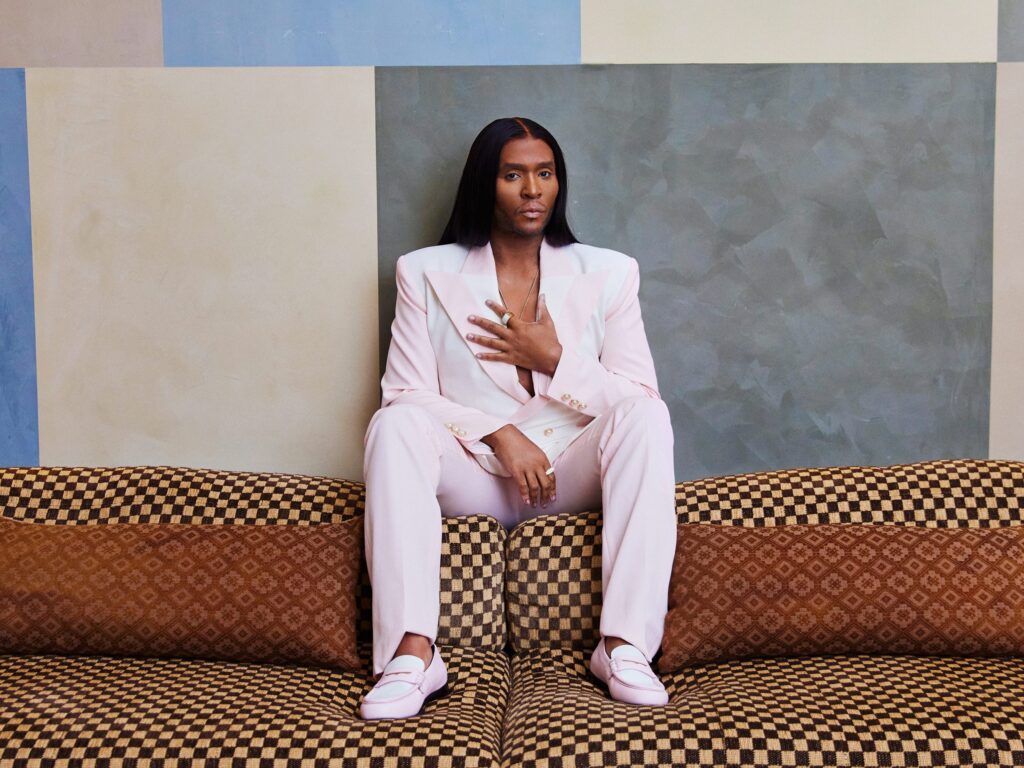Celebrity stylist Law Roach, the creative mind behind the fashion of stars like Zendaya and Keke Palmer, says the fashion industry can't exist without Black creatives — period.
Whether you realize it or not, you're familiar with Law Roach's work. To put it simply, he is celebrity fashion. He's the brain behind Zendaya's standout style, and the creative force of Priyanka Chopra Jonas' looks on magazine covers.
In case you need more proof, look deeper into his client list: Bebe Rexha, Kerry Washington, Keke Palmer, and Megan Thee Stallion, to name a few. Oh, and when Lindsay Lohan made her comeback in 2022? Roach styled her, too.
Of course, the 44-year-old's talents extend beyond styling. He appeared as a judge on HBO Max's reality series 'Legendary' and launched a runway collection with Hervé Léger last year.
It's safe to say that Roach reached fashion-icon status long ago.
In the process, he also made history as the first Black person to be named The Hollywood Reporter's most powerful stylist in 2021 — a title he earned again in 2022 — and often pays homage to Black creatives.
He dressed Zendaya in outfits entirely created by Black designers for a magazine cover in 2020, and pulled a vintage gown from his personal collection for the actor to wear at the 2021 Essence Black Women in Hollywood awards in honor of Black businesswoman Eunice Johnson.
So today, it makes sense that Roach is feeling louder and prouder than ever. In a conversation with Insider for our ongoing series, Black Ensemble: Fashion for the Culture, the stylist talked about his career, the industry's relationship with Black creatives, and why fashion is so much more than pretty dresses.
For people who don't know your story, can you walk them through your journey with fashion?
Being from the South Side of Chicago and going to church every Sunday, I always look at that as my first fashion show. And I always credit my grandmother as my biggest fashion inspiration. Clothes and fashion were always such important things to her — the process of dressing for that big show that happened every Sunday morning.
I think that stuck with me and was always a part of who I was, but you know, I came up when social media wasn't around. The world didn't seem as small as it does now.
I didn't think that working in fashion was a viable career, so it took some time for me to figure some things out. But I'm here now.
Is there a specific moment in time when you realized you wanted to be a stylist?
Well, it actually happened when I had my vintage store and Kanye West came in [to shop and the paparrazzi photographed him].
We started getting requests from all these stylists around the world. They were starting to call, just like, "Hey, do you have this?" or "Can you send us photos of what you have that fits this?" And so I was like, "This stylist thing is a thing. And it's a bigger thing than I thought it was."
At that point, I knew that's what I wanted to be. So I started calling myself one: I'm a stylist.
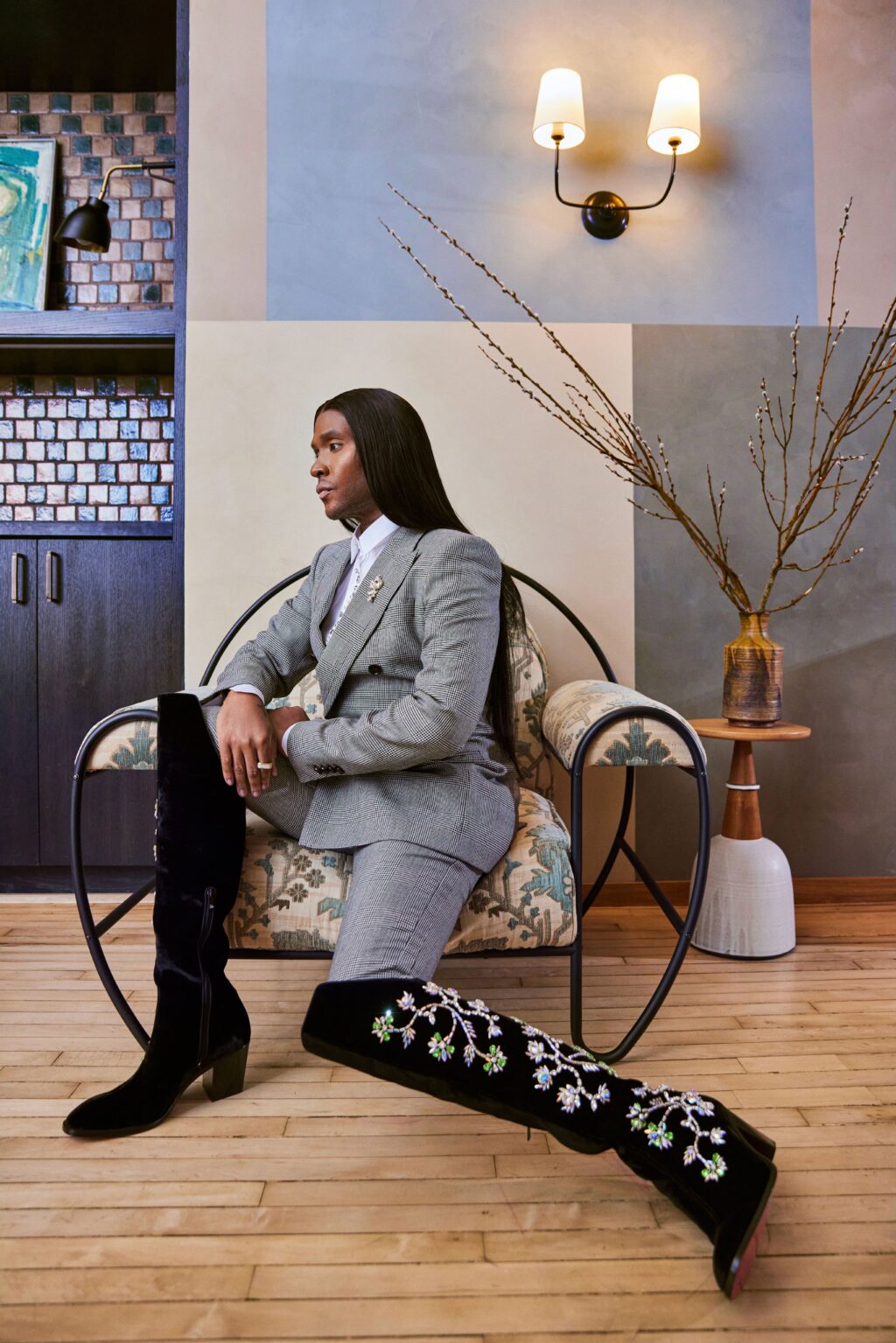
You've talked about how early in your career, Rachel Zoe was one of your only reference points for being a celebrity stylist, even though you had different life experiences. How did her work impact you?
I looked at Rachel because she had her television show and I had never seen anything like that. I knew of Black female stylists that worked predominantly with music artists, but when I saw Rachel, it kind of opened my eyes to the possibilities that were Hollywood.
I didn't see anyone who looked like me who had mirrored Rachel's career, though, so I just thought to myself, "Why can't I be that?"
I just set my sights on having that type of career.
Stylists have a unique place in the industry today — they're often in the spotlight alongside their clients. How do you feel about the fashion industry's relationship with Black stylists, designers, and artists now compared to the past?
The fashion industry has to have a relationship with Black stylists and Black designers and Black creators — period.
I think that we've come to a place where — and I hate to say it this way, but I don't know how else to say it — we've proven ourselves.
So I think the obvious answer is opportunity, because we've always known that the talent has been there. It's just that no one was giving us the opportunity to really show it.
Some of your biggest clients are young Black women, and society isn't always kind to them, like comments aimed at Zendaya's red-carpet dreadlocks in 2015. How does that impact your work?
I don't let that move me in any type of way. Knowing that doesn't affect the decisions I make.
That moment that you spoke about — Zendaya at the Oscars — was probably one of my proudest moments because it actually started a real conversation about Black women's hair. We've seen a lot of change come from that and her bravery — the way she handled the situation, you know? It really opened a global conversation.
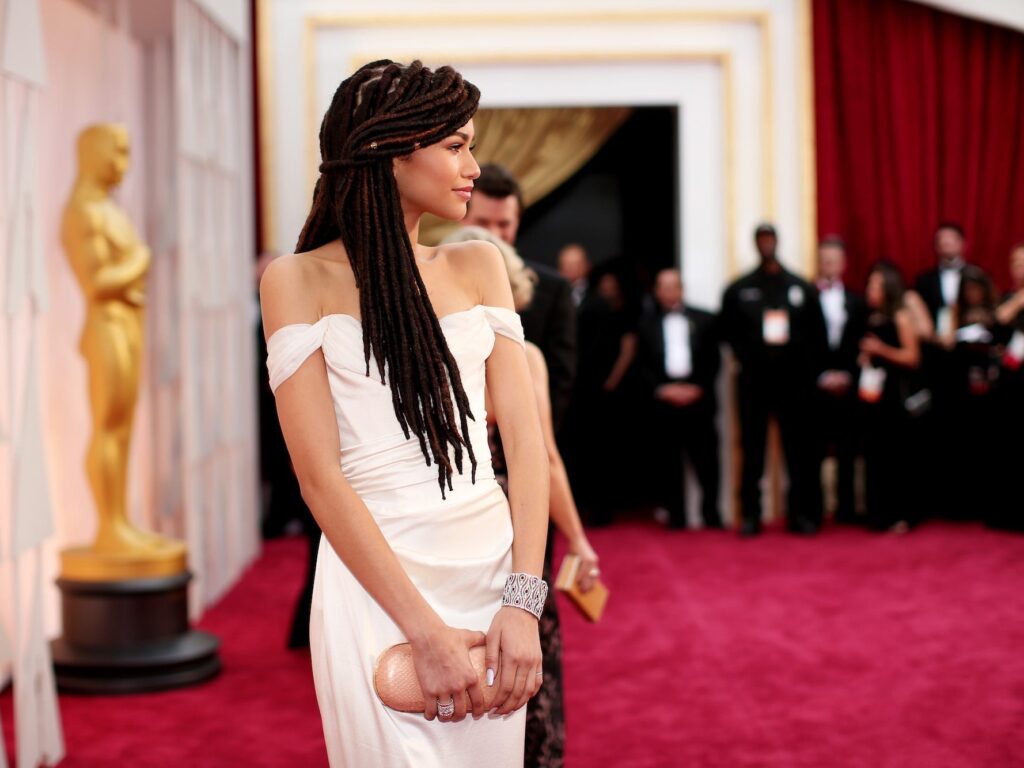
We've also seen shows like 'The Hype' and 'Legendary' canceled, and white stars regularly being credited with fashion trends started by Black creatives. Where do you think there's room for improvement in sustaining Black-led trends and representation in fashion media?
Shit. I mean, we just gotta keep calling it out. You know, that's the only way — screaming.
That's part of the plight of being a Black creative in this country. We are not always credited or celebrated for things that we started or things that we push to the mainstream. We see that in hairstyles and makeup trends and nails and clothes.
It's a continuous fight.
What do you think the future of fashion will look like, and what do you think it should look like?
I'm enjoying seeing young designers and independent designers who just show their collections and celebrate. It just seems like there's so much talent right now, and that's really exciting to me.
What advice would you give to the next generation of fashion, from designers and stylists to influencers and leaders?
Be true to yourself. Authenticity is so beautiful. Don't follow trends.
What outfits that you've styled have been the most meaningful to you?
Zendaya in Vivienne Westwood at the 2015 Oscars, and Celine Dion at the 2017 Billboard Awards in the white Stéphane Rolland.
That Celine look was the only time in my career that I've ever cried. It was so perfect — the dress and the song and the voice. It was nearing the 20th anniversary of "My Heart Will Go On," and the room was still. When I saw her onstage and the flute started to play, it was like seeing an angel. I'll never forget that.
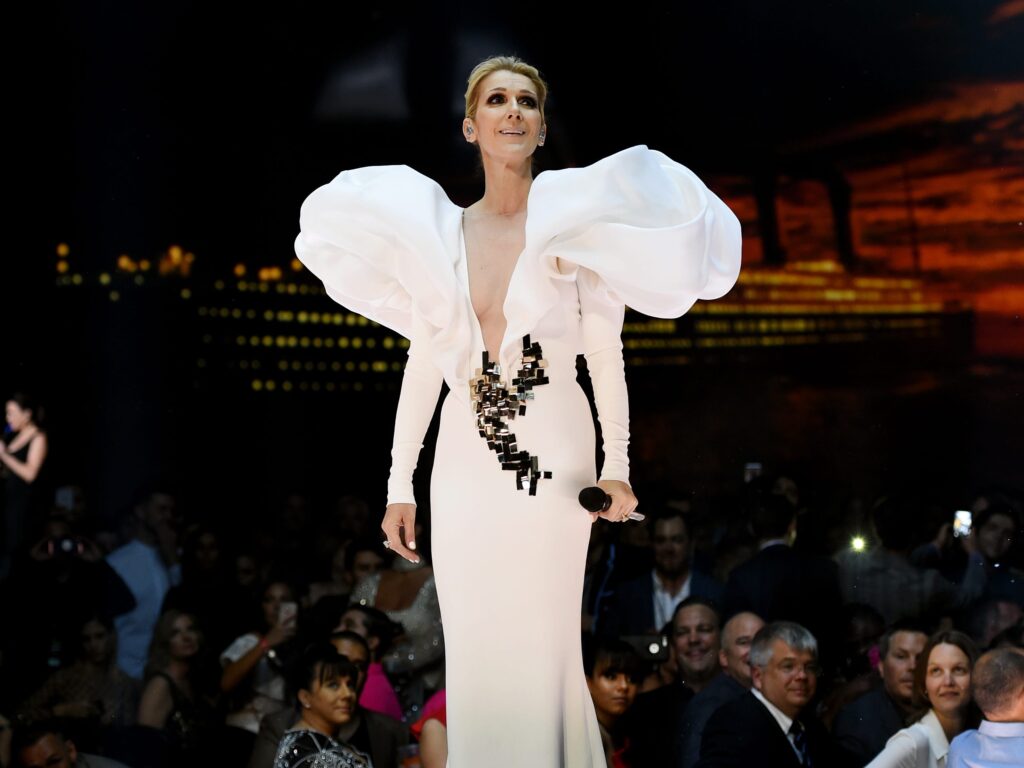
What do you want your clients to feel when you style them, and what do you hope viewers take from their looks?
Styling is like a drug for me when I know I get it right. Whoever I'm dressing, when they have that extra little thing — a little spark or a little wiggle in their walk — I just love that feeling.
To know that I had a small part in making that feeling come alive is just great.
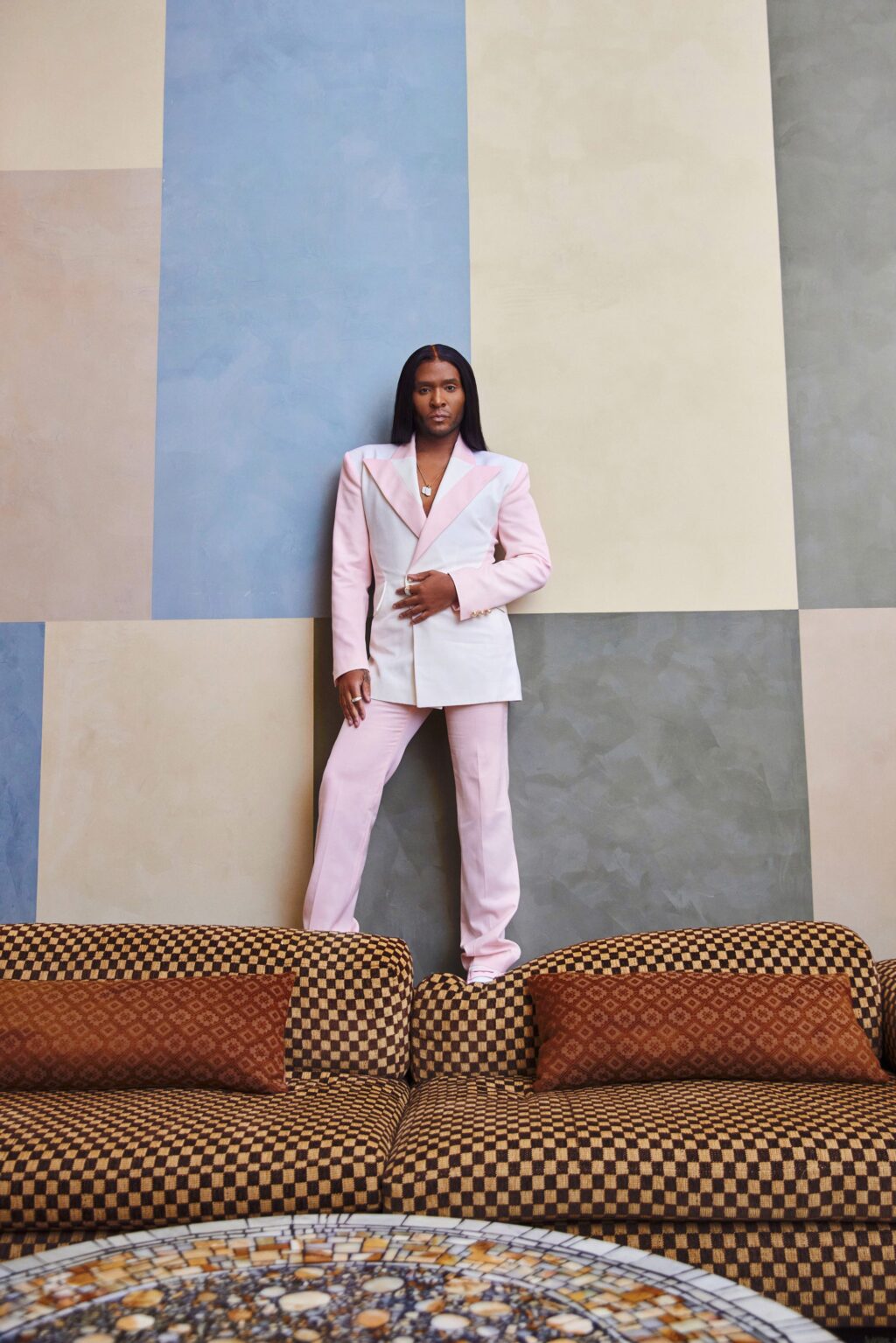
You've described yourself as an image architect rather than a stylist. What actually goes into the work you do beyond picking a great outfit?
When I was young in my career, I just thought that what I did was always more than the dress. It was helping my clients figure out who they were in the realm of fashion. What did they want to say? What's the story they wanted to tell? So I've always begun my work from that point.
I work with a lot of beautiful women, and it's not hard to put a beautiful woman in a beautiful dress. So I think, "How is this going to make people feel?"
Fashion is really transformative and has the power to transport you somewhere else, so I think, "If people were at work, what would the discussion be?" I love to start conversations. I'm very OK if someone either loves or hates what I do, as long as people can have a conversation about it.
And putting on something that makes you feel good helps the day become easier. The world becomes a little bit less cruel when you feel a certain type of way.
I think what you put on your body is just as important as what you put in it. Society is really into self-love and self-care right now, and I think fashion is the most powerful purveyor of that.
This interview has been edited and condensed for clarity.
Stay tuned for more Black Ensemble stories in the coming months, featuring some of the most important trendsetters in fashion.
